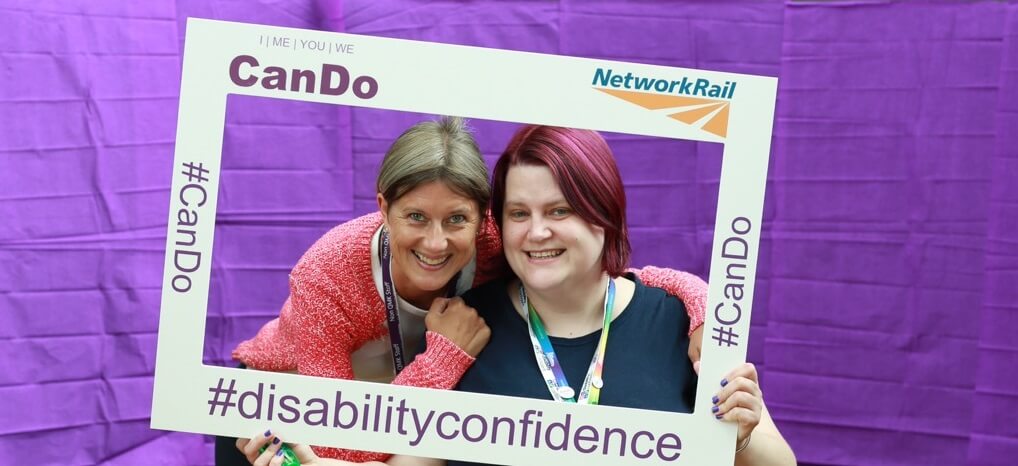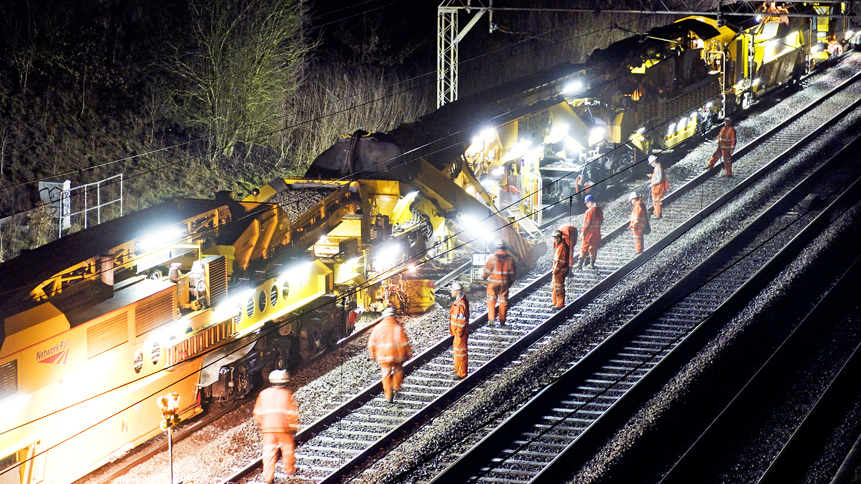We’re turning purple to celebrate International Day of Disabled Persons.
We’re joining #PurpleLightUp on 3 December – an international campaign creating purple spaces in a range of creative ways to celebrate the economic and leadership contribution of disabled employees.
There are a billion disabled people globally, according to Purple Space, a networking and professional development hub for disabled employees. That’s one in seven of us.
We Are Purple estimates the annual spending power of disabled people and their households to be worth £249bn a year to UK business.
Our leaders vow to increase disabled workforce
Our leaders have pledged to increase the number of disabled people at Network Rail. It comes after figures showed that less than 3% of our 44,000-strong workforce has declared a disability or long-term health condition.
Sir Peter Hendy CBE, chair of Network Rail, board member Dr Stephen Duckworth, and Andrew Haines, chief executive, vowed to tackle the issue during open conversations with Lucy Cashin, chair of CanDo, our employee network that helps those with physical or mental, or visible or non-visible impairments.

Andrew said: “Around 20% of the population is disabled, and yet less than 3% of our workforce has shared a disability. That’s not representative and it’s something I am determined to change.
“It’s caused by a combination of low recruitment of disabled people, and under-reporting of disability status by existing staff, both of which are things we can do something about.

“I want there to be more understanding of the huge range of railway jobs that can be done by people with most types of disability, and for us to do better at making everyone welcome. We must remove barriers, offer seamless support, and help people feel comfortable discussing and sharing their disability status.”
We’re encouraging staff to talk more about disability. We’re also raising awareness of non-visible disabilities such as mental health issues, neurodivergence and long-term health conditions such as diabetes.
We hope to collect more accurate data by supporting our people to share their disability status, which would help us produce a disability pay gap report and improve policies and processes.
Sir Peter said: “It needs that personal commitment from the top level, the tone set right from the top of the organisation, to create an inclusive culture where people are able to say how they feel, describe how they are and what they need, and know that won’t hold them back.
“We’re on that journey now. We’ve still got a way to go but I’m committed to making it happen.”
Stephen also spoke about the importance of celebrating success and promoting disabled people in the organisation.
He said: “We need disabled people to move up the hierarchy, escape the sticky floor and move into management roles, because it’s only when that management visibility is available to disabled people that they’ll have the same aspirations to push themselves forward.”
“This was about saying it’s okay to be disabled, and it’s okay to talk about being disabled. Getting accurate data on disability won’t be used in a negative way, quite the opposite. It’s the only way we can make the widespread cultural change we need.”

Read more:
CanDo – employee network profile
Diversity and inclusion at Network Rail
How we’re making a difference in diversity and inclusion



